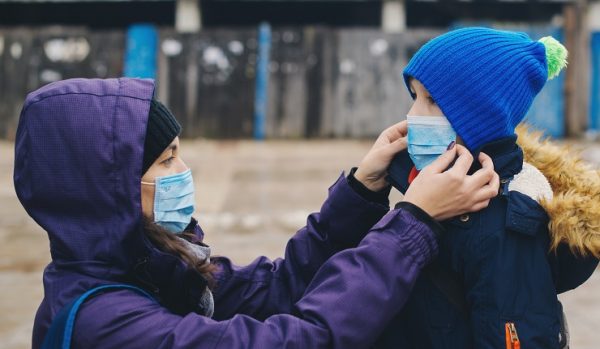
How do you get coronavirus?
Today we want to bring you the facts around how you can contract COVID-19, as well as the steps you can take to reduce your risk of contracting the virus.
Common questions:
- How do you get coronavirus?
- Steps to reduce your risk of contracting coronavirus
How do you get coronavirus?
Coronavirus is spread through respiratory droplets. Coronavirus enters the body through the mucous membranes on your face. In this instance, the mucous membranes refer to your eyes, nose and mouth.
You can contract coronavirus via:
- Contact with infected droplets when a person coughs
- Contact with infected droplets when a person sneezes
- Contact with infected droplets when a person is speaking to you, or heavily exhales near you
- Kissing an infected person
- Sharing items that come into contact with your eyes, nose or mouth such as eating utensils, cosmetics or a handkerchief with an infected person
- Touching a contaminated surface and then touching your eyes, nose or mouth
- Being within one metre of someone who is infected with the virus and breathing in the same air.
As the name suggests, coronavirus, or COVID-19, is a virus. Viruses are the most common and numerous biological entities on earth. Viruses require a host to live, which means they rely on living organisms to reproduce, grow and survive.
A way to think about the spread of coronavirus since the outbreak in Wuhan, China, last January is to imagine you are playing paintball. Each day when you leave the house, you are free of any paint traces. The more time you spend in busy public places, or with people who you do not share a home with, the more paint you will find on your clothes.
This paint is not necessarily infected but each time we come into contact with busy places and people, we are increasing the likelihood of becoming infected with coronavirus, and spreading the virus to other people.
The paintball analogy is not to scare you but it does illustrate how the virus easily spreads quickly across the world, and the steps that need to be taken to slow the spread of the virus.
There are a myriad of myths out there when it comes to how coronavirus is spread. The latest myth claims coronavirus can be passed through 5G mobile networks and radio waves.
Steps to reduce your risk of contracting coronavirus
- Practice good personal hygiene
- Practice good domestic hygiene
- Follow social distancing guidelines, no ifs, no buts
- Do not touch your face
- Cough and sneeze into your elbow.
Practice good personal hygiene
I am not sure we, as adults, ever thought we would see a day when we were being targeted with educational videos on how to properly wash our hands.
Viruses can live on the body for hours or days, and soap is the most effective way to kill the virus due to the lipid membrane that encompasses the virus. Soap, hot water and 20 seconds of washing is enough to break down the virus membranes and prevent it from entering the body. Alcohol-containing soaps, gels, creams and disinfectants are a reasonable option if you are on the go.
Practice good domestic hygiene
With all of this time spent indoors, there is no excuse not to practice good domestic hygiene. Remember the paintball analogy. If you are bringing items into the house, especially fresh produce that may have been handled by other shoppers, you should be ensuring that you are thoroughly washing these goods before consuming them.
Consider taking your shoes off and leaving them at the door. According to the ABC, high-touch surfaces such as doorknobs, kitchen worktops and tables should be disinfected twice a day. These measures might seem extreme, however, we know that viruses can live on surfaces from a few hours, up to several days.
Follow social distancing guidelines, no ifs, no buts
No exceptions can be made to the current social distancing guidelines that have been set out. Bear in mind that the faster we all commit to staying home where possible, the faster we will be able to resume life as we once knew it, or something that least resembles life as we knew it.
Every time you do need to leave the home, aim to keep the expedition as brief as possible. It’s the only sure thing that has been working to slow the spread of coronavirus since the outbreak started.
Do not touch your face
Remember, coronavirus enters the body through your eyes, nose and mouth. Whether your studying, working or watching TV, keep reminding yourself to not touch your face.
Write it on a post-it, put a reminder on your phone, just don’t touch your face.
Cough and sneeze into your elbow
If you are displaying symptoms of a cold or flu, such as coughing or sneezing, try not the panic; it may just be a cold or the flu. (Read: What are the symptoms of coronavirus.) Make sure you cough and sneeze into your elbow and not your hands.
It is an unsettling time and you may feel uncertain about what’s coming in the future. Take solace that we are all in the same boat. The best way to slow the spread of coronavirus is to act as a community, follow the guidelines set out, and for the love of Crikey, keep washing your hands.








Crikey is committed to hosting lively discussions. Help us keep the conversation useful, interesting and welcoming. We aim to publish comments quickly in the interest of promoting robust conversation, but we’re a small team and we deploy filters to protect against legal risk. Occasionally your comment may be held up while we review, but we’re working as fast as we can to keep the conversation rolling.
The Crikey comment section is members-only content. Please subscribe to leave a comment.
The Crikey comment section is members-only content. Please login to leave a comment.